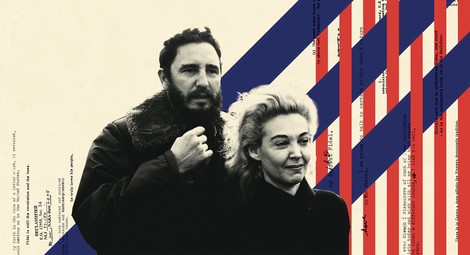Your podcast discovery platform
Curious minds select the most fascinating podcasts from around the world. Discover hand-piqd audio recommendations on your favorite topics.

piqer for: Globalization and politics Global finds
Sezin Öney, originally from Turkey, is based in Budapest and Istanbul. She her journalism career as a foreign news reporter in 1999 and she turned into political analysis as a columnist since 2007. Her interest in her main academic subject area of populism was sparked almost decade ago; and now she focuses specifically on populist leadership, and populism in Turkey and Hungary. She studied international relations, nationalism, international law, Jewish history, comparative politics and discourse analysis across Europe.
The Untold Story Of How A Love Affair Changed The Course Of The U.S.-Cuba Relations
Cuba makes headlines as the country gets a new leader: Miguel Díaz-Canel. He is the man Cuba's National Assembly has selected as the new president, and for the first time since 1959, the country is being led by a leader whose last name is not "Castro". Just as Cuba has just closed a chapter in its history, this Politico article by Peter Kornbluh opens up a long lost one.
And this lost chapter involves a romance, as well as Cold War politics amid a Cuban backdrop. There is also a surprise ending: the romance may have instigated back-channel diplomacy that eventually led to establishment of dialogue between the U.S. and Cuba decades later. Moreover, as a consequence of this "unofficial communication channel", various Cold War hurdles might have been avoided.
The romance was between Fidel Castro and the American reporter Lisa Howard. They met in 1963, when Howard traveled to Havana to interview Castro.
And as Kornbluh, the director of the Cuba Documentation Project at the National Security Archive in Washington, and the co-author, with William M. LeoGrande, of the book Back Channel to Cuba: The Hidden History of Negotiations Between Washington and Havana puts it:
[s]he became Castro’s leading American confidant, as well as his covert interlocutor with the White House—the key link in a top-secret back channel she singlehandedly established between Washington and Havana to explore the possibility of rapprochement in the aftermath of the Cuban missile crisis. From mid-1963 to the end of 1964, Howard secretly relayed messages from Cuba’s revolutionary regime to the White House and back again. She also used her reporting skills and high-profile perch at ABC to publicly challenge the Cold War mind-set that Castro was an implacable foe of U.S. interests. Her role as peacemaker was built on a complex, little-understood personal rapport she managed to forge with Castro himself—a relationship that was political and personal, intellectual and intimate.Dramatic lives, fascinating read.
Stay up to date – with a newsletter from your channel on Global finds.
